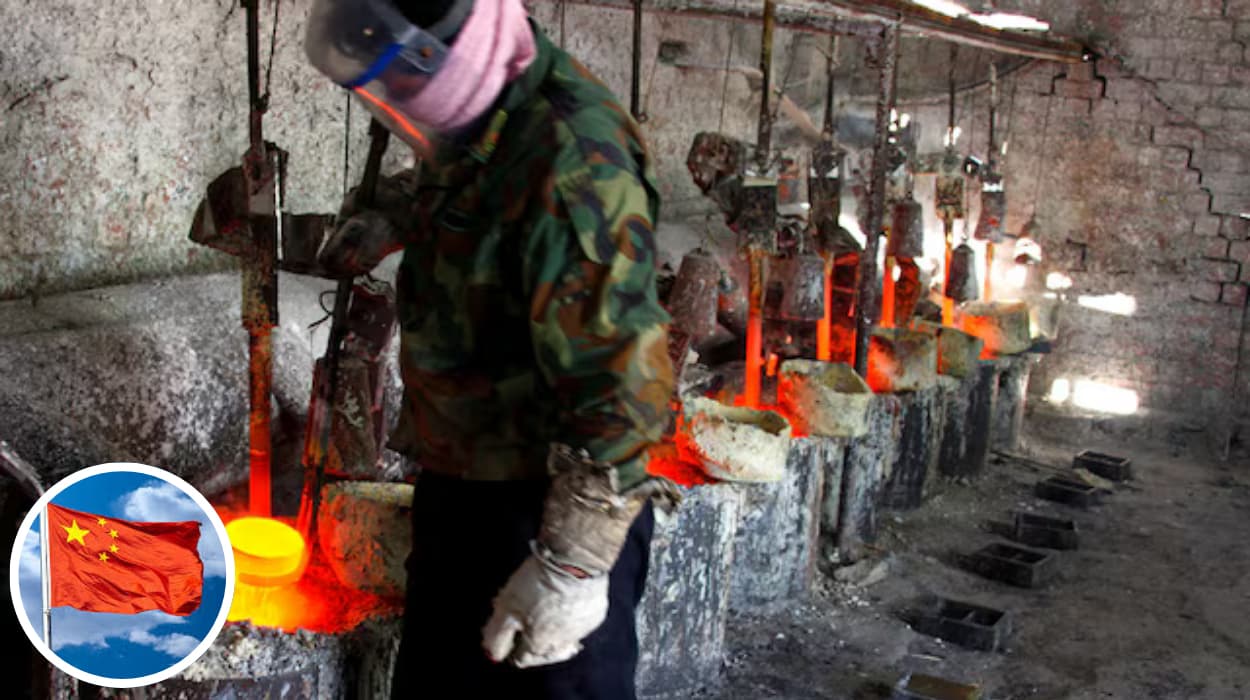Summary
- China commits to intensifying efforts to combat smuggling of strategic minerals.
- Strategic minerals considered critical for national security and economic development.
- Smuggling disrupts supply chains and threatens China’s technological and defense progress.
- Enhanced law enforcement measures and stricter penalties announced.
- Emphasis on inter-agency collaboration and border controls.
- China’s actions are part of broader efforts to secure supply of critical materials amid global demand.
This development within China’s broader strategy to safeguard its economic and security interests. The government's renewed focus on combating smuggling of strategic minerals comes as global demand for these critical resources surges, driven by rapid technological advancements and geopolitical tensions. Enhanced enforcement measures are expected to significantly reduce illegal trade activities, strengthen China’s control over vital supply chains, and ensure stability in markets that are crucial for the country's high-tech industries and defense capabilities. This crackdown signals China’s intent to maintain its dominant position in the global minerals market while protecting national security and fostering sustainable economic growth.
What Is China’s New Stance on Smuggling Strategic Minerals?
China has officially vowed to implement tougher actions against the smuggling of strategic minerals, underscoring their importance to the country’s national security and economic growth. According to multiple reports, the Chinese government recognizes that illicit trading in these minerals not only disrupts domestic supply chains but also jeopardizes the progress in key technology sectors and defense capabilities critical to the nation’s future.
This announcement reflects the growing global importance of strategic minerals, a category that includes rare earth elements, lithium, cobalt, and others essential for electronics, renewable energy technologies, and military applications.
Why Are Strategic Minerals Critical to China?
Strategic minerals are vital resources for modern industry and defense, and China has been positioning itself as a key player in the global supply chain. The demand for such minerals has seen an unprecedented rise due to their use in electric vehicles, smartphones, renewable energy infrastructure, and advanced weaponry. The disruption of their supply — through smuggling or other illegal means — would undermine China's technological development and economic stability.
As reported, the Chinese leadership is concerned that unchecked smuggling activities contribute to supply shortages and price fluctuations on the international markets, which in turn can affect China's competitiveness in these high-tech sectors.
What Measures Is China Implementing to Stop Smuggling?
The government has pledged to ramp up law enforcement efforts by imposing stricter penalties on smugglers and enhancing surveillance and customs controls, particularly at border regions identified as smuggling hotspots.
China plans to promote closer inter-agency collaboration involving customs authorities, police, and border patrols to create a unified enforcement front against illegal mineral trade networks. Strengthening legal frameworks and increasing transparency in the mineral supply chains are also part of the action plan.
How Does China’s Action Fit Into the Broader Global Context?
China’s statement on curbing the smuggling of strategic minerals appears amid rising global competition for these resources. Countries worldwide are increasingly aware of vulnerabilities in their supply chains for critical minerals, exacerbated by geopolitical tensions and fragile international trade conditions.
By tightening control domestically, China is reinforcing its position in the global market while also ensuring the uninterrupted flow of materials essential for its ambitious technological advancements and defense readiness.
What Could Be the Impact of China’s Tougher Crackdown?
If effectively implemented, China’s crackdown on mineral smuggling could lead to:
- A reduction in illicit trade activities.
- Stabilization of domestic and international mineral prices.
- Safeguarding of supply chains crucial for high-tech and defense industries.
- Increased legal compliance by mining and trading companies.
- Influence on global markets as China is among the largest producers and consumers of these minerals.
Which Authorities and Experts Have Commented on This?
As reported by various international news sources, including detailed coverage by specialized economic and security analysts, China’s new policy is seen as a significant step toward securing the sovereignty of vital natural resources amid a rapidly evolving geopolitical landscape. No direct quotes from Chinese officials were available in the sourced reports, but the tone of official statements emphasizes national security and economic resilience.
What Are the Next Steps in China’s Efforts?
Chinese authorities propose to continuously monitor the effectiveness of new measures and adjust enforcement strategies accordingly. They also aim to enhance cooperation with exporting and importing countries to curb cross-border smuggling networks.
This news develops amid ongoing global conversations about sustainability, resource security, and economic competitiveness, making China’s firm stance a notable development with implications for international trade, security policies, and the global supply of strategic minerals.

